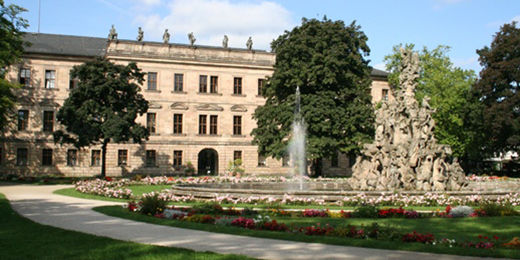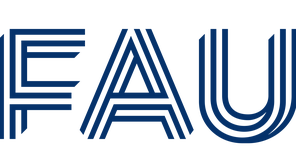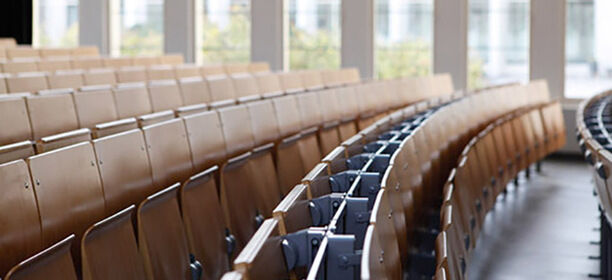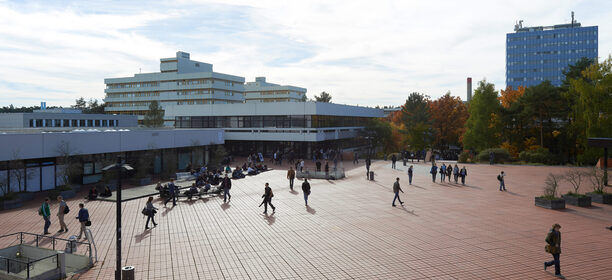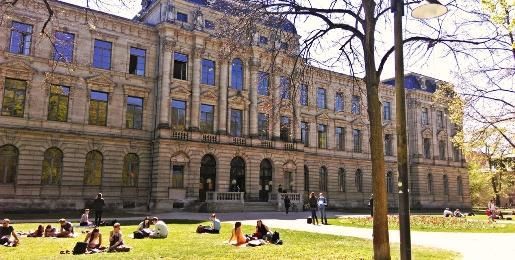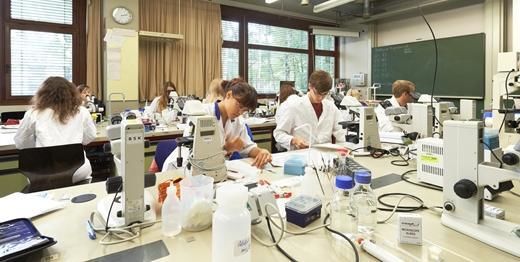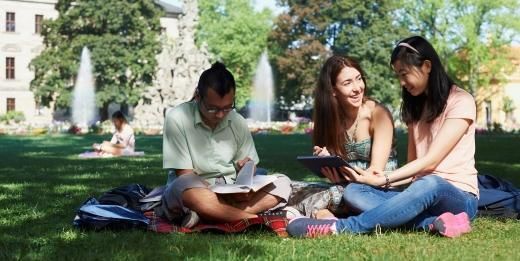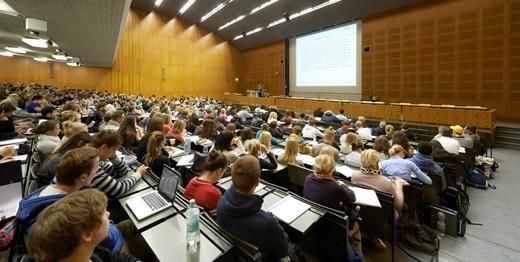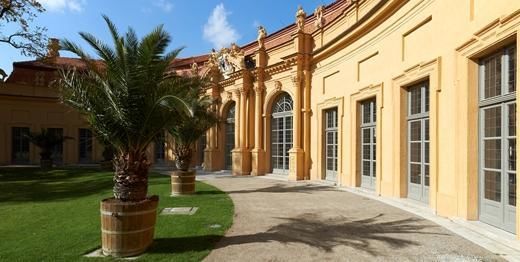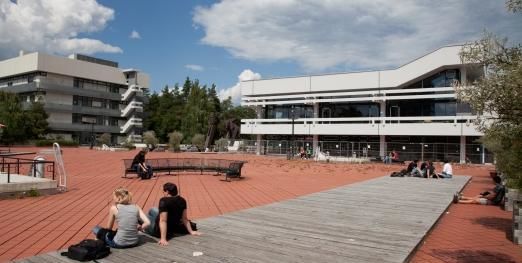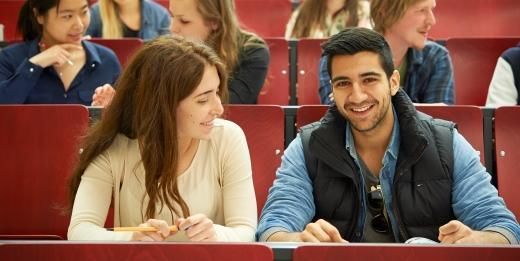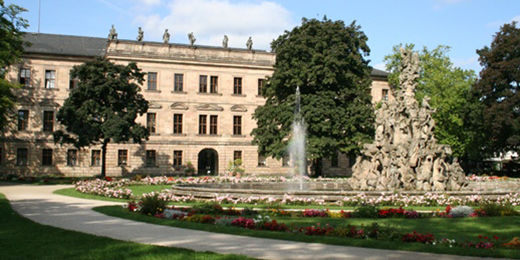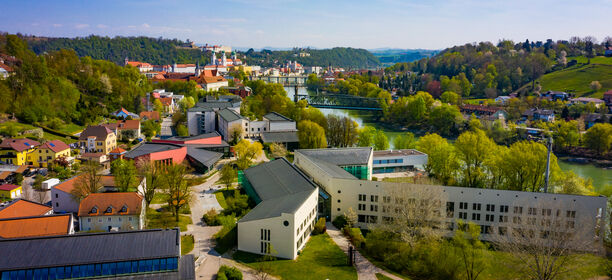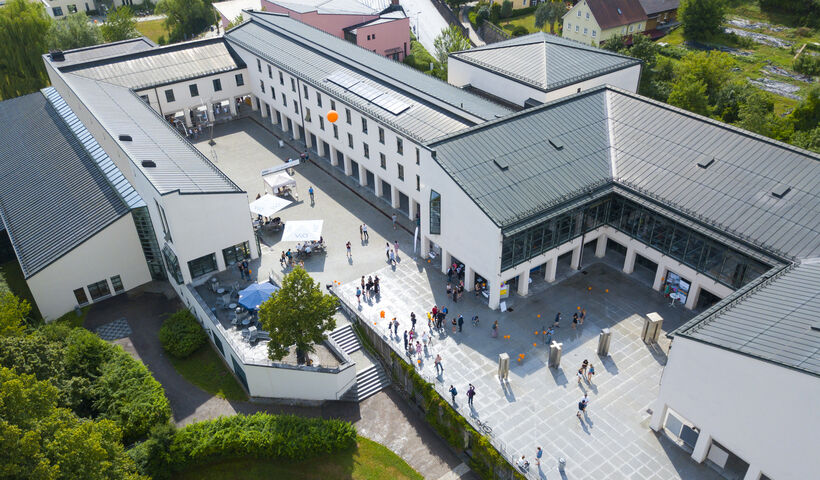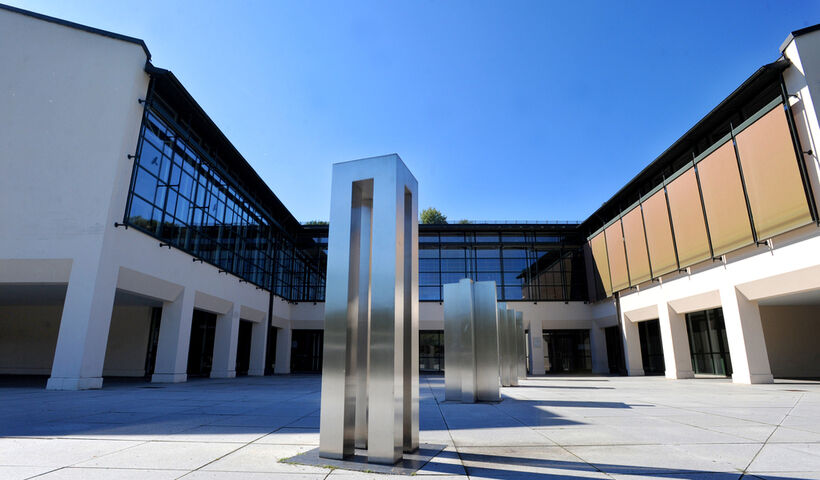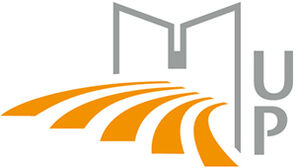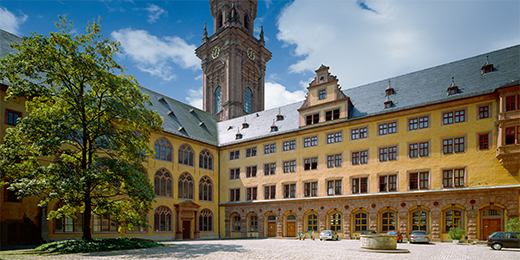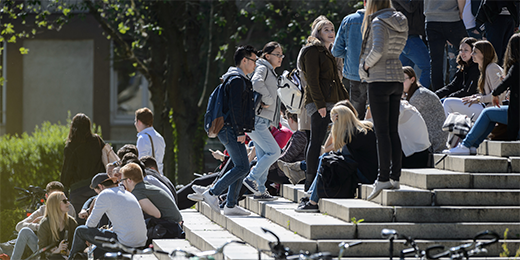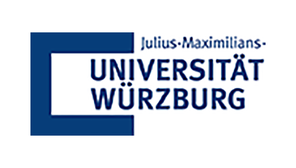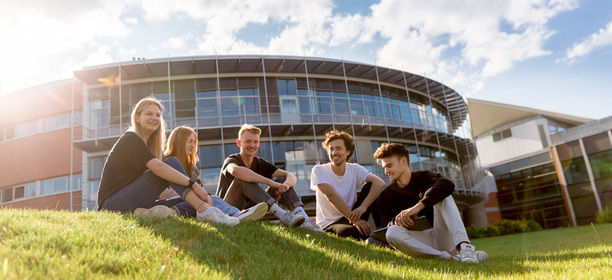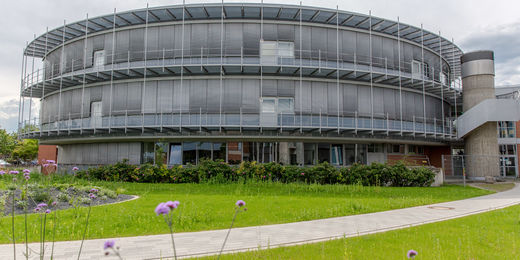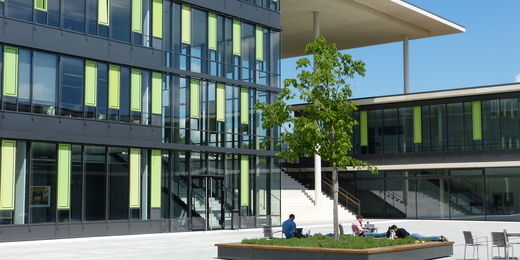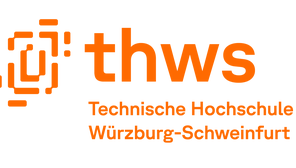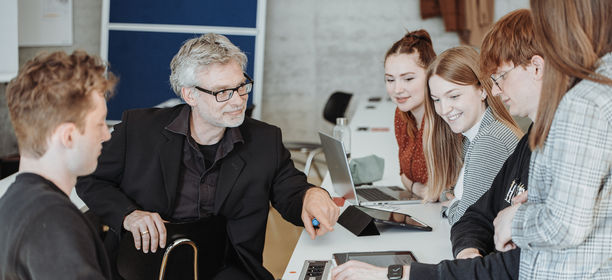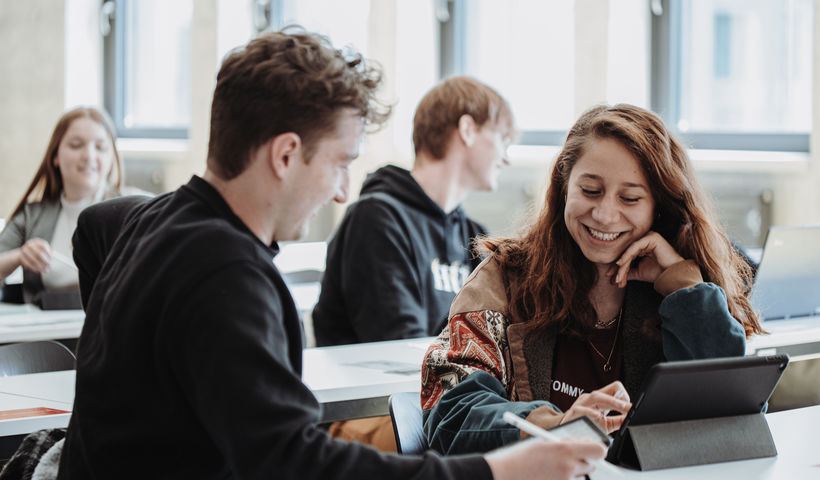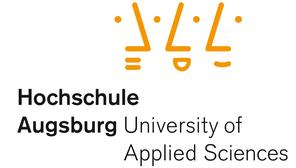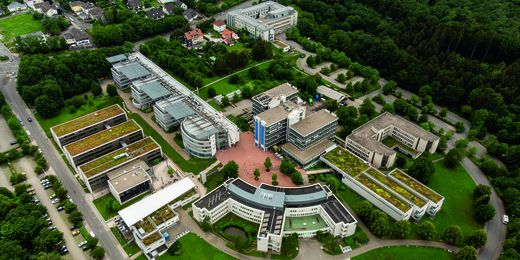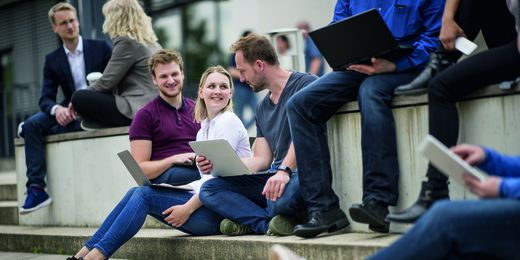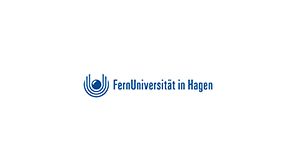Friedrich-Alexander-Universität Erlangen-Nürnberg
- Promotionsrecht: Ja
- Trägerschaft: öffentlich-rechtlich
- 1743 gegründet
- 38.960 Studierende
Die Friedrich-Alexander-Universität Erlangen-Nürnberg (FAU) ist eine der forschungsstärksten Unis in Deutschland und mit rund 39.000 Studierenden die größte in Nordbayern. Das Studienangebot der FAU ist in seiner Vielfalt und interdisziplinären Vernetzung deutschlandweit einzigartig.
Hochschule im Fokus
Forschung und Lehre auf höchstem Niveau
Als eine der forschungsstärksten Universitäten Deutschlands gehört die FAU in den Bereichen Forschung u. Lehre zu den besten Adressen weltweit. In nationalen und internationalen Rankings werden die ausgezeichnete Qualität von Lehre u. Forschung an der FAU regelmäßig bestätigt. Besonders hervorheben kann sich die Universität mit Spitzenleistungen im Times Higher Education-Ranking, im QS World University-Fächerranking, dem Förderatlas der Deutschen Forschungsgemeinschaft sowie dem Reuters Innovationsranking. Dieses zählt die FAU zu den 50 innovativsten Universitäten weltweit - in Europa landet die FAU auf Platz 2. Forschung und Lehre an der FAU sind untrennbar miteinander verbunden – so fließen Forschungsergebnisse unmittelbar in Seminare und Vorlesungen ein.
Die Universität setzt auf starke Partnerschaften mit globalen Top-Unternehmen wie Siemens, Audi oder Adidas sowie außeruniversitären Forschungseinrichtungen wie dem Max-Planck-Institut, den Fraunhofer-Instituten oder dem Helmholtz-Institut. Diese Kooperationsprojekte sorgen für einen schnellen Transfer von Forschungsergebnissen. Beispielhaft für hochkarätige Forschungseinrichtungen an der FAU stehen das Max-Planck-Institut für die Physik des Lichts in Erlangen, die International Max Planck Research School Physics of Light und die International Audio Laboratories Erlangen.
Eine weitere Besonderheit an der FAU ist das deutschlandweit einmalige duale Bachelorverbundstudium. Dank einer umfassenden Kooperation mit der Industrie- und Handelskammer (IHK) Nürnberg für Mittelfranken und der Handwerkskammer (HWK) für Mittelfranken haben Studieninteressierte die Möglichkeit, an einer Universität zu studieren und gleichzeitig eine Berufsausbildung zu absolvieren. Die Studieninteressierten können sich aus rund 200 IHK- bzw. 130 HWK-Ausbildungsberufen und rund 70 Bachelorstudiengängen der FAU ihre duale Wunschkombination frei zusammenstellen.
Stimmen von Studierenden

Beatriz, 23
„Die FAU ist das perfekte Sprungbrett für meine Karriere bei einem Unternehmen in der Region und darüber hinaus. Die Universität bietet mir viele Informationen und Veranstaltungen, die mich beim Einstieg unterstützen. Eine riesengroße Hilfe ist dabei der Career Service der FAU.“
Schlossplatz 4
91054 Erlangen
Tel: 09131 85-0
Fax: 09131 85-22131
Hochschule im CHE-Ranking abschneiden.
Die Friedrich-Alexander-Universität Erlangen-Nürnberg gehört zu den Universitäten.
Ja, du kannst an der Friedrich-Alexander-Universität Erlangen-Nürnberg promovieren.
Die Friedrich-Alexander-Universität Erlangen-Nürnberg ist eine öffentlich-rechtliche Hochschule. Es gibt staatliche und staatlich anerkannte Hochschulen, die meist in Universitäten, Fachhochschulen (international: University of Applied Sciences) und Kunst- sowie Musikhochschulen unterteilt werden. Der überwiegende Teil der Hochschulen wird vom Staat finanziert und befindet sich daher in staatlicher Trägerschaft. Dort fallen in der Regel nur geringe Semesterbeiträge an. An den privaten Hochschulen hingegen, die sich über private Trägerschaften finanzieren, können wesentlich höhere Studiengebühren anfallen. Einen Weg, die finanziellen Hürden dieser Hochschulen zu umgehen, können Stipendien darstellen.
Es gibt außerdem Hochschulen, die von der protestantischen oder katholischen Kirche betrieben werden.
Die Friedrich-Alexander-Universität Erlangen-Nürnberg wurde im Jahr 1743 gegründet.
Insgesamt gibt es 38960 Studierende an der Friedrich-Alexander-Universität Erlangen-Nürnberg.
Standorte dieser Hochschule sind Erlangen und Nürnberg.
Hier findest du die Fristen und Termine für deine Bewerbung:
- Vorlesungszeit:
-
14.10.2024 - 07.02.2025
- Studienanfänger:
-
ca. Ende April bis Ende September, vereinzelt auch andere Fristen möglich
- Hochschulwechsler:
-
ca. Ende April bis Ende September, vereinzelt auch andere Fristen möglich
- International Studierende aus der Europäischen Union:
-
ca. Ende April bis spätestens 15. Juli eines Jahres
- International Studierende aus Staaten, die nicht Mitglied der EU sind:
-
ca. Ende April bis spätestens 15. Juli eines Jahres
- Studienanfänger:
-
ca. Ende April bis spätestens 15. Juli eines Jahres
- Hochschulwechsler:
-
ca. Ende April bis spätestens 15. Juli eines Jahres
- International Studierende aus der Europäischen Union:
-
ca. Ende April bis spätestens 15. Juli eines Jahres
- International Studierende aus Staaten, die nicht Mitglied der EU sind:
-
ca. Ende April bis spätestens 15. Juli eines Jahres
- Studienanfänger:
-
Bewerbungsfristen für Masterstudiengänge: www.master.fau.de
- Hochschulwechsler:
-
Bewerbungsfristen für Masterstudiengänge: www.master.fau.de
- International Studierende aus der Europäischen Union:
-
Bewerbungsfristen für Masterstudiengänge: www.master.fau.de
- International Studierende aus Staaten, die nicht Mitglied der EU sind:
-
Bewerbungsfristen für Masterstudiengänge: www.master.fau.de
- Studienanfänger:
-
Bewerbungsfristen für Masterstudiengänge: www.master.fau.de
- Hochschulwechsler:
-
Bewerbungsfristen für Masterstudiengänge: www.master.fau.de
- International Studierende aus der Europäischen Union:
-
Bewerbungsfristen für Masterstudiengänge: www.master.fau.de
- International Studierende aus Staaten, die nicht Mitglied der EU sind:
-
Bewerbungsfristen für Masterstudiengänge: www.master.fau.de
- Vorlesungszeit:
-
15.04.2024 - 19.07.2024
- Studienanfänger:
-
Studienbeginn nur zu einem Wintersemester
- Hochschulwechsler:
-
ca. Dezember bis Ende März, vereinzelt auch andere Fristen möglich
- International Studierende aus der Europäischen Union:
-
ca. Dezember bis spätestens 15. Januar eines Jahres
- International Studierende aus Staaten, die nicht Mitglied der EU sind:
-
ca. Dezember bis spätestens 15. Januar eines Jahres
- Studienanfänger:
-
Studienbeginn nur zu einem Wintersemester
- Hochschulwechsler:
-
ca. Dezember bis spätestens 15. Januar eines Jahres
- International Studierende aus der Europäischen Union:
-
ca. Dezember bis spätestens 15. Januar eines Jahres
- International Studierende aus Staaten, die nicht Mitglied der EU sind:
-
ca. Dezember bis spätestens 15. Januar eines Jahres
- Studienanfänger:
-
Bewerbungsfristen für Masterstudiengänge: www.master.fau.de
- Hochschulwechsler:
-
Bewerbungsfristen für Masterstudiengänge: www.master.fau.de
- International Studierende aus der Europäischen Union:
-
Bewerbungsfristen für Masterstudiengänge: www.master.fau.de
- International Studierende aus Staaten, die nicht Mitglied der EU sind:
-
Bewerbungsfristen für Masterstudiengänge: www.master.fau.de
- Studienanfänger:
-
Bewerbungsfristen für Masterstudiengänge: www.master.fau.de
- Hochschulwechsler:
-
Bewerbungsfristen für Masterstudiengänge: www.master.fau.de
- International Studierende aus der Europäischen Union:
-
Bewerbungsfristen für Masterstudiengänge: www.master.fau.de
- International Studierende aus Staaten, die nicht Mitglied der EU sind:
-
Bewerbungsfristen für Masterstudiengänge: www.master.fau.de
Als Fakultät wird eine Gruppe von Fächern oder eine Abteilung mit mehreren Wissenschaftsbereichen bezeichnet. Sie bildet eine
Lehr- und Verwaltungseinheit und ist für die Organisation von Forschung, Lehre und dem Studium an sich des jeweiligen Fachbereichs
verantwortlich.
An der Friedrich-Alexander-Universität Erlangen-Nürnberg gibt es folgende Fakultäten und Fachbereiche:
- Vorlesungszeit:
-
14.10.2024 - 07.02.2025
- Studienanfänger:
-
ca. Ende April bis Ende September, vereinzelt auch andere Fristen möglich
- Hochschulwechsler:
-
ca. Ende April bis Ende September, vereinzelt auch andere Fristen möglich
- International Studierende aus der Europäischen Union:
-
ca. Ende April bis spätestens 15. Juli eines Jahres
- International Studierende aus Staaten, die nicht Mitglied der EU sind:
-
ca. Ende April bis spätestens 15. Juli eines Jahres
- Studienanfänger:
-
ca. Ende April bis spätestens 15. Juli eines Jahres
- Hochschulwechsler:
-
ca. Ende April bis spätestens 15. Juli eines Jahres
- International Studierende aus der Europäischen Union:
-
ca. Ende April bis spätestens 15. Juli eines Jahres
- International Studierende aus Staaten, die nicht Mitglied der EU sind:
-
ca. Ende April bis spätestens 15. Juli eines Jahres
- Studienanfänger:
-
Bewerbungsfristen für Masterstudiengänge: www.master.fau.de
- Hochschulwechsler:
-
Bewerbungsfristen für Masterstudiengänge: www.master.fau.de
- International Studierende aus der Europäischen Union:
-
Bewerbungsfristen für Masterstudiengänge: www.master.fau.de
- International Studierende aus Staaten, die nicht Mitglied der EU sind:
-
Bewerbungsfristen für Masterstudiengänge: www.master.fau.de
- Studienanfänger:
-
Bewerbungsfristen für Masterstudiengänge: www.master.fau.de
- Hochschulwechsler:
-
Bewerbungsfristen für Masterstudiengänge: www.master.fau.de
- International Studierende aus der Europäischen Union:
-
Bewerbungsfristen für Masterstudiengänge: www.master.fau.de
- International Studierende aus Staaten, die nicht Mitglied der EU sind:
-
Bewerbungsfristen für Masterstudiengänge: www.master.fau.de
- Vorlesungszeit:
-
15.04.2024 - 19.07.2024
- Studienanfänger:
-
Studienbeginn nur zu einem Wintersemester
- Hochschulwechsler:
-
ca. Dezember bis Ende März, vereinzelt auch andere Fristen möglich
- International Studierende aus der Europäischen Union:
-
ca. Dezember bis spätestens 15. Januar eines Jahres
- International Studierende aus Staaten, die nicht Mitglied der EU sind:
-
ca. Dezember bis spätestens 15. Januar eines Jahres
- Studienanfänger:
-
Studienbeginn nur zu einem Wintersemester
- Hochschulwechsler:
-
ca. Dezember bis spätestens 15. Januar eines Jahres
- International Studierende aus der Europäischen Union:
-
ca. Dezember bis spätestens 15. Januar eines Jahres
- International Studierende aus Staaten, die nicht Mitglied der EU sind:
-
ca. Dezember bis spätestens 15. Januar eines Jahres
- Studienanfänger:
-
Bewerbungsfristen für Masterstudiengänge: www.master.fau.de
- Hochschulwechsler:
-
Bewerbungsfristen für Masterstudiengänge: www.master.fau.de
- International Studierende aus der Europäischen Union:
-
Bewerbungsfristen für Masterstudiengänge: www.master.fau.de
- International Studierende aus Staaten, die nicht Mitglied der EU sind:
-
Bewerbungsfristen für Masterstudiengänge: www.master.fau.de
- Studienanfänger:
-
Bewerbungsfristen für Masterstudiengänge: www.master.fau.de
- Hochschulwechsler:
-
Bewerbungsfristen für Masterstudiengänge: www.master.fau.de
- International Studierende aus der Europäischen Union:
-
Bewerbungsfristen für Masterstudiengänge: www.master.fau.de
- International Studierende aus Staaten, die nicht Mitglied der EU sind:
-
Bewerbungsfristen für Masterstudiengänge: www.master.fau.de
Studieren und Leben in einer der schönsten Regionen Deutschlands
Studieren und leben im Herzen Europas
Die Städte Nürnberg und Erlangen liegen in einer der schönsten und wirtschaftlich stärksten Regionen Europas: Bayern. Wegen ihrer zentralen Lage wird die Region auch das Herz Europas genannt. Die Metropolregion Nürnberg ist eine ihrer ökonomischen, historischen und kulturellen Mittelpunkte. Von hier aus sind Reisen in andere europäische Städte wie Prag oder München besonders leicht möglich, denn Nürnberg ist als Verkehrsknotenpunkt der ideale Ausgangsort für Reisen mit Auto, Zug, Bus oder Flugzeug. Die Alpen mit ihren vielfältigen Freizeitangeboten sind ebenfalls schnell zu erreichen.
Nürnberg und Erlangen zeichnen neben ihrer langen Geschichte und ihrer zentralen Lage besonders durch wirtschaftliche Stärke aus. Das Umfeld aus weltweit bekannten Unternehmen wie Siemens, Audi oder Adidas und innovativen Start-ups bietet für junge Akademikerinnen und Akademiker aus allen Studiengängen beste Berufschancen. Deshalb arbeiten die Universität und die Unternehmen vor Ort Hand in Hand. Diese guten Kontakte der FAU erleichtern es den Absolventen, ihre berufliche Karriere zu starten.
Auch für das Leben abseits der Universität bietet die Region viel: Nürnberg ist mit über 500.000 Einwohnern die größere der beiden Städte und gehört zu den beliebtesten Touristenzielen in Europa. Sie glänzt durch eine historische Altstadt und viele grüne Oasen inmitten der Stadt und gehört zu den Städten mit der höchsten Lebensqualität in Deutschland. In Erlangen leben über 100.000 Menschen – davon rund 25.000 Studierende. Dieser hohe Anteil an jungen Menschen sorgt für ein besonderes Flair und macht Erlangen zu einer aufregenden und spannenden Studentenstadt, in der immer etwas los ist. Die nahegelegene Fränkische Schweiz ist mit ihren alten Wäldern, grünen Wiesen und wunderschönen Hügeln zudem ein echtes Naturparadies, das zum Klettern, Wandern und Radfahren einlädt.
In der Welt zu Hause
Die FAU ist international ein geschätzter Partner – für Forschungs- kooperationen ebenso wie für den Studierendenaustausch. 500 Hochschul- partnerschaften in über 70 Ländern sowie 1.330 Wissenschaftlerinnen und Wissenschaftler und mehr als 4.000 internationale Studierende aus der ganzen Welt zeigen die hohe Anziehungskraft der FAU weltweit.
Durch diese Kontakte ermöglicht die FAU ihren Studierenden Aufenthalte in den interessantesten Ländern der Welt. Ein Studium im Ausland öffnet einen neuen Blick auf die Studienfächer, erweitert fachliche Kenntnisse und kann Interessenschwerpunkte vertiefen. Nebenbei lernen die Studierenden der FAU neue Lehr- und Lernkulturen kennen und erwerben Fremdsprachenkenntnisse. Die Studienleistungen im Ausland werden für das Studium an der FAU anerkannt.
Für ein Studium im Ausland bietet die FAU mit ihren zahlreichen ausländischen Partnerhochschulen viele Möglichkeiten. Studierende können beispielsweise mit ERASMUS+ an Partnerhochschulen der FAU in Europa und in ausgewählten Partnerländern studieren. Über die Direktaustausch-Programme der FAU bestehen Studienmöglichkeiten in Ländern außerhalb Europas.


